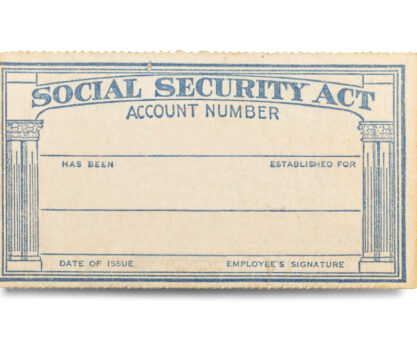Unfortunately, the answer is yes. Singles need to save more for retirement because income taxes and Social Security are structured to favor married couples. For FERS pre-retirees who will be entering retirement solo, planning for your golden years presents a unique set of financial decisions.
All The Expenses Are Yours Alone
Without a spouse providing a second source of income, you don’t have the financial flexibility that married couples enjoy. From housing, food and utilities, to emergency savings to cover costs when the unexpected happens, you have to cover everything. And, if you’re sidelined by a chronic illness, you’ll need to pay for non-medical custodial care completely out of pocket.
“If you’ve never been married, delaying your Social Security until age 70 to maximize your benefit is something to consider.”
Filing For Social Security
If you’re single due to a divorce or the loss of a spouse, you need to know the rules governing Social Security. For example, if you’re divorced and your marriage lasted 10 or more years, you’re eligible for benefits based on your ex-spouse’s earnings as long as you haven’t remarried before age 60. If you’ve never been married, delaying your Social Security until age 70 to maximize your benefit is something to consider. No matter what strategy you choose, you can only depend on one Social Security check so get the facts before you decide.
Consider Long-Term Care Insurance
Long-Term Care (LTC) insurance is something to consider when you don’t have a spouse who can care for you at home. Many people assume FEHB or Medicare will cover nursing home care if they need it. In reality, most primary healthcare insurance plans do not cover non-medical, custodial care in a facility. Unless you’ve purchased LTC insurance, these expenses will need to be paid out of pocket. A nursing home can cost as much as $10,000 per month or more depending on where you live.
And If You Become Incapacitated
Without a spouse to handle matters if you become incapacitated, you can’t be sure your wishes will be honored. A Durable Power Of Attorney enables you to name someone who can make decisions about your finances and sign documents on your behalf; until you’re able to do so yourself. Look into creating an Advance Health Care Directive that specifies your wishes for medical care and end-of-life treatment.
Income Taxes Are Higher For Single Filers
Tax planning is crucial for singles because they pay more in income taxes than married couples filing jointly and using the same table. With RMDs on the horizon, you need a tax-efficient strategy for drawing down your traditional Thrift Savings Plan (TSP). To learn more, with an FRC® trained advisor.


























